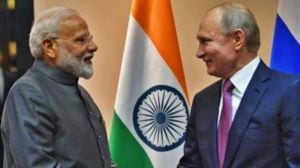Stay updated with the latest - Click here to follow us on Instagram
Study to suggest how to bring urban poor in loop
Making healthcare affordable and accessible to the urban poor continues to be a major challenge in India.
Making healthcare affordable and accessible to the urban poor continues to be a major challenge in India. To address this problem,the International Institute for Population Sciences (IIPS) in Mumbai,in collaboration with other agencies,has initiated a study on the health of the urban poor.
Further,while the Centre had proposed a National Urban Health Mission (NUHM),which may be modelled on the National Rural Health Mission (NRHM),the findings of the IIPS study will act as major inputs for the mission. The IIPS project,which involves organisations like the United States Agency for International Development (USAID) and the Population Foundation of India among others,will focus on eight states including Maharashtra,Uttar Pradesh,Madhya Pradesh,Orissa,Jharkhand and Rajasthan.
The study is significant because even for the simplest things in healthcare,the cost in the private sector is very high. The urban poor and homeless cannot afford it. With so much migration to urban areas,lack of affordable healthcare for the urban poor is a serious issue and its high time that we provided solutions for it, said Prof F Ram,IIPS director. Further,the Centre is planning to introduce the NUHM and work on formulating it is currently on. Our recommendations will act as inputs for the policy, he said. As part of the project,capacity building and training of medical officers has already been initiated by IIPS in some states.
A baseline survey will focus on multiple aspects like medical facilities in urban areas and infrastructure needs,availability of essential primary healthcare services,involvement of the government and private sector,and assessment of the needs of the people among others. Vulnerability mapping will also be part of the project. The field work will be initiated in three cities including Pune,Jaipur and Bhubaneswar. For instance,Mumbai has over 200 urban health posts which are located in the slum areas. We will analyse their functioning,specific services offered,the gaps that exist and if we can make them function the same way as sub-centres do in rural areas, he said.
As part of NRHM,rural areas have rogi kalyan samitis which are registered societies with members from the community and are responsible for managing the affairs of the hospital. Taking a cue from it,the IIPS study will see if a similar community structure can be implemented in thee urban areas to ensure proactive involvement in planning,implementation and monitoring of health services.
The project will focus on interventions required and ways to bring in public-private participation.







